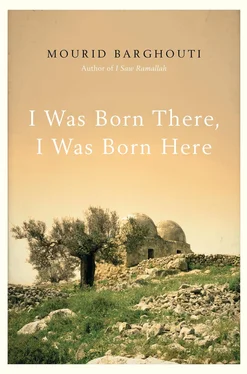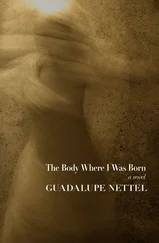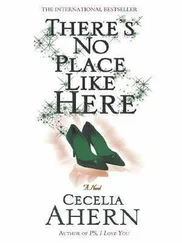I sat down next to the circle of dry leaves and wrote without pause until I had finished a poem that I called Ghurfa mu’aqqata (A Temporary Room).
Later, after many drafts and exclusions, I found that, without planning it, I had a collection of verse ready to be published.
The poems would set upon me like a highway bandit as I walked the roads of the world.
This is how the collection al-Nas fi laylihim (People at Night) was born, as well as more than half the collection Zahr al-rumman (The Pomegranate Flowers), which I published immediately after that.
As soon as ‘The Pomegranate Flowers’ appeared, I began writing Muntasaf al-layl (Midnight), a single book-length poem on which I spent more than two years.
Three collections one after the other. Then I stopped completely.
I stopped like someone returning from a marathon or who raises his hand in the dentist’s chair as a signal that he can’t put up with the sound of the drill any longer.
Was it the poetry that exhausted me or the pressures that made me write?
Or did I now need an overdue dose of laziness?
The amazing thing is that to be a poet you need two contradictory things — a great amount of vitality and a great amount of idleness. It’s always easy to find the vitality because it’s essential to staying alive. Any chance for idleness vanished with the invasion of Iraq.
History teaches us that political lies are a preface to war but the lies used to justify the invasion of Iraq exceeded all imagination and provoked millions of human beings on every continent. History has taught us that collusion among interested parties is widespread but the invasion of Iraq witnessed the collusion of governments at odds with their peoples and indifferent to the protests of millions of them, despite their high-flown talk of democracy. The invasion of Iraq upset the details of my daily life as much as the Occupation. American arrogance was now directed against every one of us and the era of universal apartheid between the strong and the weak began.
The worst thing about wars is that they reduce the enemy to a single characteristic. The country ceases to be history, language, architecture, theater, gardens, and legends; a heritage of love stories, philosophy, and science; shared ancestral dreams and uncountable varieties of human striving along the roads of the universe. Instead, every country becomes a mere label, blot, field of battle. This is what war has done to the names Palestine, Vietnam, Lebanon, Bosnia, Kosovo, Afghanistan, and Iraq. These are no longer multifaceted countries and their names are mentioned in news bulletins not as such but as ‘fields’—fields from which the numbers of the dead and wounded are garnered daily like the output of a canned goods factory. The whole of history is now ‘today’ and today has become a reduction of every ‘yesterday’ that has passed over the face of this earth, a reduction of all history. As though al-Mutanabbi had never walked the markets of al-Kufa hugging himself with joy at a nation that would be singing his verses for a thousand years. As though the Abbasids had never built their libraries on the banks of the Tigris and Abu Nuwas never maintained his pinnacle of shamelessness and flagrant sexual indulgence through to the pinnacle of day after first exhausting the night with poetry and lovely depravities that spared neither male nor female. As though al-Hallaj had never been crucified defending what he had seen with the eye of the imagination and the eye of the mind. As though Hammurabi had never written his code on tablets of burnt clay before Coca-Cola and McDonald’s had been transformed into a religion for all mankind, while Gilgamesh, who achieved immortality by not finding the plant of immortality on the steppes of his everlasting legend, is treated as though he were not of the land of Iraq. Bush and Rumsfeld reduced all this to the word ‘enemy.’
Not one rational Arab believed for an instant that the Ba‘th Party was synonymous with Iraq and not one believed that Osama bin Laden was synonymous with Islam. However, war wants to summarize and abridge, not because the U.S. cannot understand but because it doesn’t want to understand. A Brazilian journalist once asked me, “To what do you attribute the West’s ‘misunderstanding’ of Islam?”
My answer was, “If a ‘misunderstanding’ serves the interests of certain people and helps them realize their goals, those people will decide to misunderstand. In such cases, the misunderstanding isn’t an accident that can be corrected through knowledge, dialogue, or better information. It’s a deliberate choice .”
When the politicians of the West decide that Islam is a religion based on violence and murder, they adopt the definition used by Islam’s own extremists. While claiming to fight it, the politicians of the West generalize the extremist definition. They encourage the naïve to believe the extremists’ theories. Today, in our own countries, numerous groups of Muslims also practice a deliberate ‘misunder-standing’ of Islam. Ignorance of the truth, or the intentional ignoring or polluting of it, is not only a characteristic of the oppressor. The oppressed may also be ignorant, may they not? At a mourning ceremony, the women may be taken aback to find a strange woman, with no connection to the deceased and unknown to his family and relatives, bursting into the house without permission and launching into her ‘lesson in religion’ to the weeping and mourning women, describing the torments of the grave as though she’d been there like some news agency correspondent, seen every detail with her own eyes, and returned to tell the tale with an ‘accuracy’ that instills terror in the souls of her listeners. Hundreds of satellite TV stations have appointed themselves spokespersons for Islam, handing over hours of their transmission time to jurisprudents of the small screen and charlatans with fatwas that no rational person accepts so that they can proclaim their contempt for medicine, science, history, geography, and all the arts, from music, dance, song, and cinema to the theater. The governments that claim to be waging war on such persons in reality compete with them in an attempt to prove that they are no less pious or faithful.
Piety is not the characteristic for which the Barghoutis are best known, but most of the women of the family now wear the hijab, including two of the wives of my three brothers, as do some of their daughters. I condemn neither the wearing of hijab nor those who have decided to wear it. What I condemn is turning hijab into a registered trademark of faith and a litmus test of piety, righteousness, and good morals. Hijab is a form of dress and dress neither proves nor disproves anything. Niqab, though, is a criminal offence. Why? Because a woman wearing niqab, whose face cannot be seen, is the equivalent of a car moving through the streets without a number plate.
Later, Uncle ‘Ata suffers a brain hemorrhage and two days before his death, the doctors will decide that he is living his last hours. His son and daughter came from the Gulf, and find him lashed to life by a support apparatus of wires and tubes, unconscious in the final coma. I am taken aback to see his six daughters and his son’s wife bring a huge black Toshiba tape recorder into the intensive care unit and make repeated and laborious attempts to stuff its earpieces into his ears so that he can listen to a recording of verses from the Qur’an in the hope that this will cure him. The important thing, though, is that the doctors, nurses, and administrators of the Shmaysani Hospital in Amman don’t dare remove the Toshiba from the intensive care unit lest they be accused of being irreligious.
I say to the girls in a calm voice that almost choked me, “You’re right. Thanks to this Toshiba, my uncle will wake from his coma, leave the intensive care unit, and immediately play in the World Cup” (it was 2006).
Читать дальше











